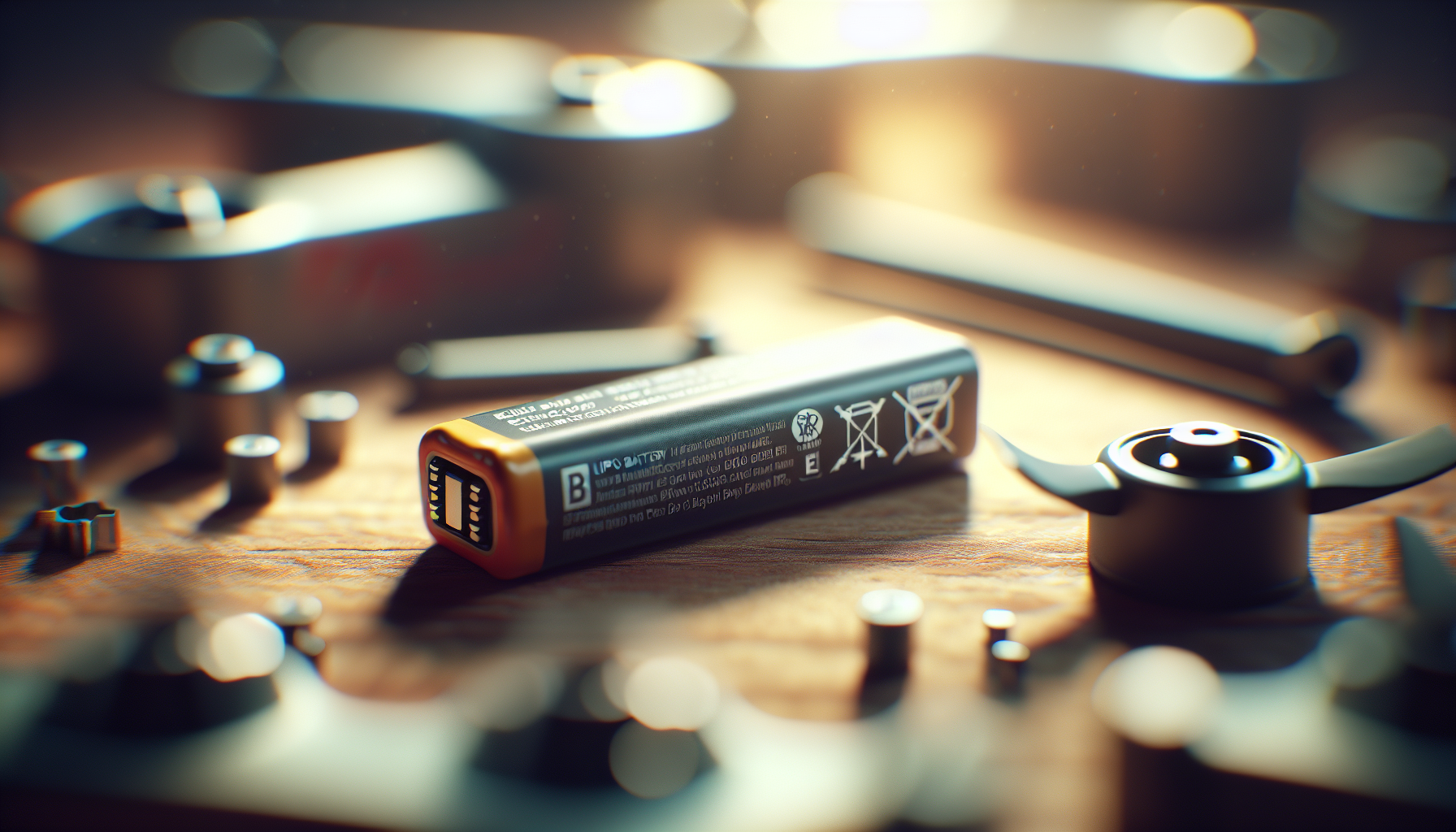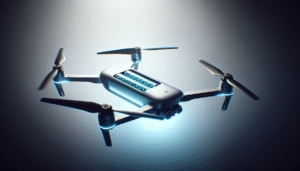Ever wondered what to do with those leftover LiPo batteries after a thrilling day of drone flying? Trust me, you’re not alone in this conundrum. Disposing of lithium polymer (LiPo) batteries isn’t as straightforward as tossing them into the nearest trash bin or recycling bin. Needless to say, LiPo batteries are a different breed of beast, with a unique set of quirks and safety concerns that can leave even seasoned pilots scratching their heads.

Understanding LiPo Batteries
When we talk about LiPo batteries, we’re delving into a world of volatile chemistry. These power-packing wonders are the beating heart of our beloved flying machines. In essence, LiPo batteries consist of several cells containing a polymer electrolyte. This allows for the compactness and lightweight design drone enthusiasts covet. However, it’s precisely this chemical composition that renders them both powerful and somewhat temperamental.
Why Proper Disposal Is Critical
So, what’s the big deal with simply getting rid of a LiPo battery like you would an old AA or AAA battery? Well, it’s all about the potential dangers and environmental impact. A mishandled LiPo battery can become a fire hazard, and these little powerhouses are not particularly fond of excessive heat or pressure. In short, the risk of combustion makes them a ticking time bomb when not disposed of correctly. This risk is even higher when batteries have already been stressed by heat exposure, which is why understanding how to prevent drone battery overheating in hot environments is essential long before disposal becomes necessary.
Legal Guidelines for LiPo Battery Disposal
Before getting into the nitty-gritty of how to dispose of these batteries, it’s important to know what the law says. Unfortunately, regulations for battery disposal can be as varied as a box of assorted chocolates, differing from country to country, and sometimes even from city to city.
General Rules and Regulations
In most regions, disposing of LiPo batteries with regular household waste is prohibited. This is due to the aforementioned risks associated with their improper disposal. It’s crucial to familiarize yourself with local government regulations to avoid fines or other potential penalties. Some areas have designated drop-off points or special waste collection events for electronic waste that includes batteries.
Notable Legislation
Certain regulations are worth mentioning. For instance, in the United States, the Resource Conservation and Recovery Act (RCRA) outlines the legal framework for proper hazardous waste disposal, including batteries. The European Union has the Battery Directive, which mandates that member states have systems in place for collecting and recycling batteries. Checking these regulatory requirements can save you a lot of headaches, fines, and perhaps a twinge of environmental guilt.

Safe Methods for LiPo Battery Disposal
Understanding the proper procedures for disposing of LiPo batteries is akin to learning a responsible adulting skill—weighty, yet surprisingly fulfilling when mastered.
Preparation Before Disposal
Before you even think about disposal, proper preparation is key. Begin by making sure the battery is fully discharged. You can safely reduce stored energy using a LiPo charger’s discharge or balance mode, following a controlled process similar to this step-by-step guide to balance charging LiPo batteries. This significantly lowers the risk of fire during handling and transport.
Disposal Options
After discharging, you’ve got several options at your disposal. Pun absolutely intended.
Community Recycling Programs
One of the most straightforward and community-oriented methods is to check if your local recycling center accepts LiPo batteries. Many communities have dedicated e-waste programs, and some retailers that sell electronics also offer recycling programs. It’s a win-win situation—safe disposal that results in a cleaner environment.
| Place | Recycling Option |
|---|---|
| Local Electronics Store | Drop-off program |
| Community Recycling Center | Monthly or bi-monthly e-waste collection event |
| Public Schools | Environmental and tech recycling drives |
Mail-In Recycling Services
If no such options exist locally, mail-in recycling services present a convenient alternative. Companies like Battery Solutions and Call2Recycle offer mail-in programs that allow you to send your used LiPo batteries safely and responsibly.
Special Waste Collection Sites and Events
Keep an eye out for special waste collection days in your area where hazardous waste is collected, including batteries. These events are often run by local government or environmental organizations and can be a practical way to dispose of your battery while supporting community efforts.
Safety Tips and Precautions
You wouldn’t hand over a set of car keys to a first-time driver without some cautionary advice, right? The same principle applies when handling LiPo batteries, especially as you prepare to dispose of them.
Handling LiPo Batteries Safely
- Protection: Always handle LiPo batteries with care. Use protective gloves and glasses to avoid contact with any corrosive substances.
- Checking for Damage: If a battery appears swollen or damaged, exercise extreme caution, as this is a potential fire risk.
- Storage: Keep LiPo batteries in a fireproof bag if they need to be stored temporarily.
Avoid Common Mistakes
- Never crush, puncture, or incinerate batteries—the risk of explosion or fire is real.
- Do not dispose of them in standard trash or recycling bins. It’s not just environmentally irresponsible; in many cases, it’s illegal.
- Avoid water exposure as it can cause the battery to short-circuit, increasing the risk of fire.
Environmental and Health Implications
Realistically, you might not notice the ecological footprint of a single LiPo battery, but collectively, they can lead to significant environmental hazards.
Environmental Impact
When LiPo batteries are disposed of improperly, they leech heavy metals and other chemicals into the soil, which can contaminate water supplies and harm wildlife. This can create a cascade of ecological effects that disrupts local ecosystems.
Health Risks
Beyond environmental concerns, these leaks present considerable health risks. Human exposure to the chemicals found in improperly disposed LiPo batteries can result in respiratory issues, skin irritation, and other more severe health impacts. For broader answers around battery safety, maintenance, and end-of-life handling, the DroneAperture FAQ section offers additional clarity.
Conclusion: It’s A Collective Responsibility
Reflecting on everything, it becomes transparently clear: proper disposal of LiPo batteries is an endeavor that extends beyond the responsibility of any single drone pilot. It’s a collective act of environmental stewardship. So, the next time you’re clearing out your stash of LiPo batteries, remember, each responsible disposal is a step toward a safer, healthier world. Even if it means spending a little extra time or effort in ensuring they end up where they’re meant to, let’s not underestimate the power of doing things the right way and setting an example for others to follow.


